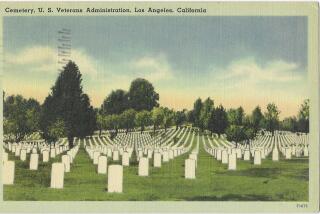CLIPBOARD : HOW TO: RESEARCH GENEALOGICAL RECORDS
- Share via
After Lloyd McDonald’s aunt died in 1956, he found a box of hand-scribbled notes among her belongings. It seemed that no one else in the family was interested in the contents, but to McDonald the yellowing papers represented a gold mine.
“I’d known that my aunt was gathering the family genealogy,” he said. “Finding her records meant that I could finish the project she had started.”
For Lloyd McDonald and other genealogists, having a branch of the National Archives in Laguna Niguel means ready access to information that could trace their heritage back to that first family member who stepped ashore.
“The archives is like a cemetery,” he said. “Once a record gets delivered here, it just doesn’t move anymore. You have all the time in the world to do a tedious records search.”
It is up to most people to research their ancestry themselves. Advertisements claiming to be able to track your roots (down to a family emblem and coat of arms) within a few weeks are generally unreliable. Accurately detailing a family history often takes years of research and time. Here’s how you can get started:
* Start with the known and work toward the unknown. You are the first branch of the tree, record your vital information (date of birth, birthplace, spouse’s name, children and add their vital information). Record your parents’ vital information on the next stem of the tree. Move from branch to branch, from generation to generation.
* Emphasize names, dates, places and relationships. Records identify people by their names, by the events in their lives (birth, death, marriage), by places they lived and their familial relationship to others.
* Research materials found in the home. Look for genealogical information in family Bibles, diaries, wills, the backs of pictures, baby books and letters.
* Fill in the missing blanks. Make a list of ancestors with incomplete histories on 3x5 cards. Identify the counties where other ancestors were born, married or died.
* Contact other family members. There is a chance that someone else in the family may be working on a family history. Advertise your genealogical interests in national, regional and local genealogical publications and in the personal ads of local newspapers.
* Focus on categories of research. Pursue county records, such as birth and death certificates, probate records (adoption papers, name changes) or tax records first. After isolating counties and states of interest, turn a special focus on the federal government records available at the National Archives.
The records in the National Archives were not designed for genealogical research. Further, there is no complete genealogical list on file. However, since the archives has custody of millions of records relating to anyone who ever had dealings with the federal government, using the following materials to trace family roots back a few hundred years is possible. Some of records on file at the Pacific Southwest Regional Archives include:
* Service Records for the Revolutionary War, War of 1812 and Civil War
* Population Census Reports (1790-1910)
* Immigration and Passenger Arrival Records (1800-1951)
* Various Southwestern and Cherokee Indian Records (1884-1955)
* California Mortality Schedules (1850 and 1860)
* Baptismal Records for Los Angeles County
* California’s Spanish Archives
* Spanish-American Land Grant Records of California
While there is no single source of genealogical information, many resources are available that could play a helpful part in filling in the blanks on your family tree.
For more information, contact the following:
* Huntington Beach Library (more than 14,000 genealogical books and records on file), 7111 Talbert Ave., Huntington Beach, 92648, (714) 842-4481
* Orange County Genealogical Society, P. O. Box 1587, Orange, 92668 (no telephone)
Yorba Linda Genealogical Society, c/o Yorba Linda Library, 18262 Lemon Drive, Yorba Linda, 92686, (714) 777-2873
* National Archives-Pacific Southwest Region, 24000 Avila Road, Laguna Niguel, 92677, (714) 643-4241
Source: Huntington Beach Library, National Archives-Pacific Southwest Region
More to Read
Sign up for Essential California
The most important California stories and recommendations in your inbox every morning.
You may occasionally receive promotional content from the Los Angeles Times.













